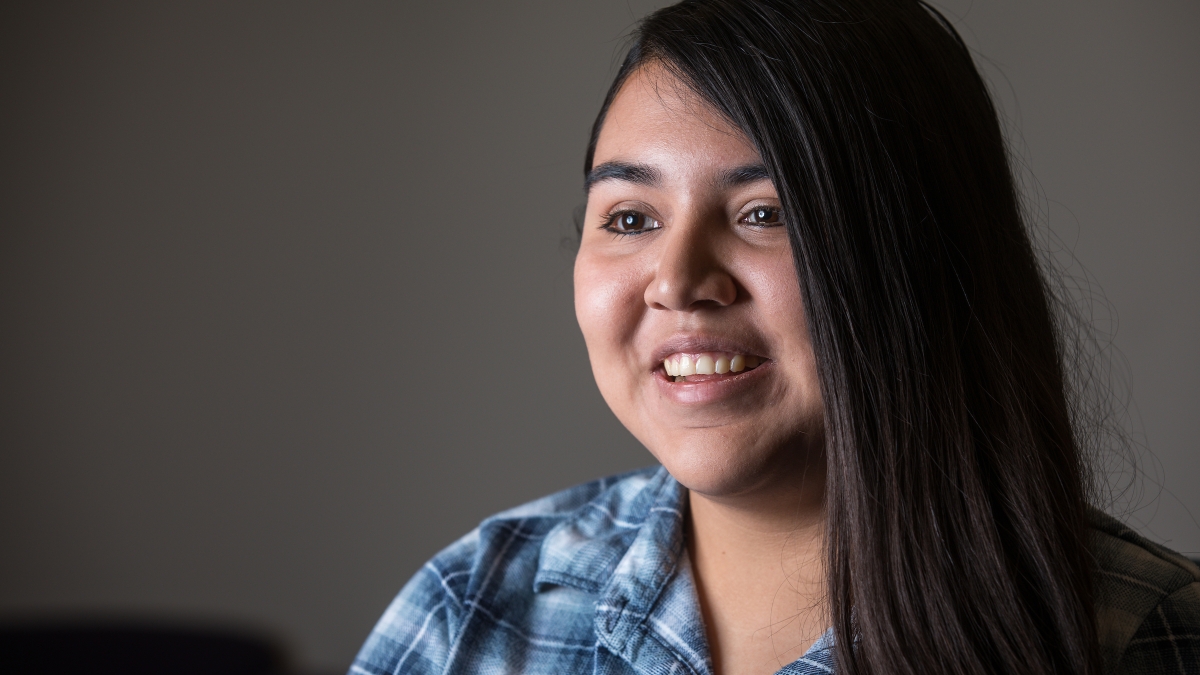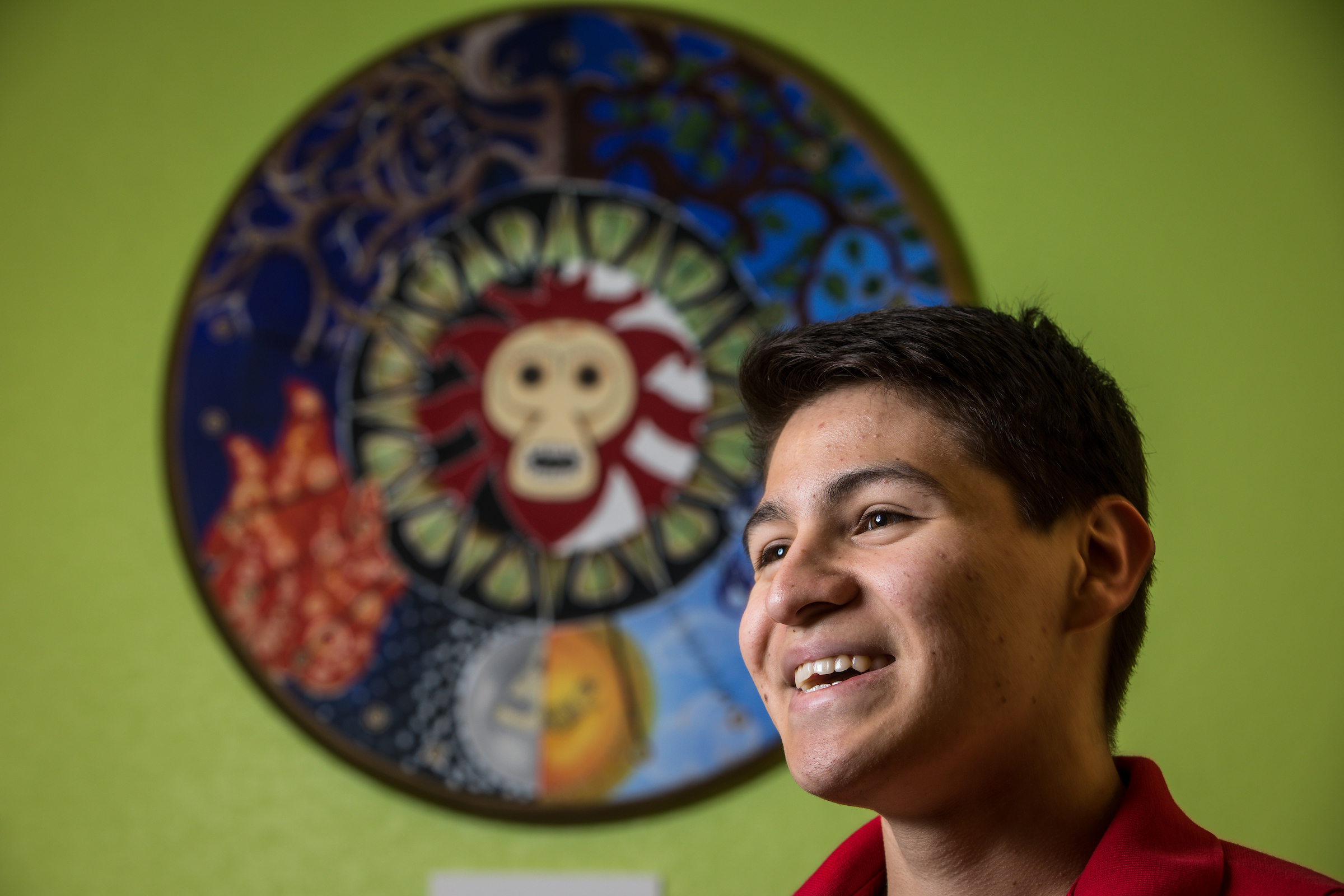CAMP boosts children of migrant farmworkers

Growing up, Dyan Urias took it as a given that one day she’d go to college, but it wasn’t until high school that she began to understand how tough it would be.
Urias (pictured above), the daughter of a migrant farmworker, would have to leave her small town of San Luis, figure out how to pay for school and navigate everything from getting admitted to scheduling classes.
She made it to ASU this fall but was having trouble adjusting — until she heard about the College Assistance Migrant Program.
CAMP is “like a family,” Urias said. “It gives you that moral support.”
The 45-year-old federal program, housed at the School of Transborder Studies, helps students from migrant and seasonal farmworker backgrounds in their first year of college with academic, personal and financial support. In the fall of 2016, ASU was awarded its first CAMP grant of $2.1 million from the U.S. Department of Education to support 160 students over five years.
“ASU CAMP Scholars is a much-needed program that enacts ASU’s charter of inclusion,” said Seline Szkupinski-Quiroga, program director for CAMP.
“Even though Arizona has the eighth-largest population of migrant students in the U.S., only about 20 percent make it to college. CAMP is here to remove barriers to higher education for migrant students, and provide them a ‘home’ here on campus where we understand and value their background while helping them navigate the university.”
CAMP is one of many ASU resources for underrepresented student populations. Others include the Inspire summer camp, a college-readiness program for American Indian students from tribal nations in Arizona; the Pat Tillman Veterans Center, which boosts student veterans, active-duty military members, their spouses and dependents; the DREAMzone initiative, which provides support for undocumented students; and the Women of Color STEM Entrepreneurship Conference, an annual event geared toward women and specifically women of color in higher education.
Since being accepted to CAMP, Urias no longer has to worry about tuition or textbook expenses and she has a place she can go where she feels at home. She went to high school in San Luis with several other members of the current cohort. They meet every Sunday for study hall and catching up.
Those meetings have also served as a place for the students to learn more about university resources, such as financial aid, internships, jobs and community service opportunities.
It’s how electrical engineering major Juan Cardenas found out about Devils in Disguise, ASU’s annual student-led day of service.
“It helped me get involved, and I became a site leader,” he said. “That was really fun because I got to take care of 20 people and got to know them.”
Electrical engineering major Juan Cardenas is pictured in the offices of the School of Transborder Studies on ASU's Tempe campus, where CAMP students meet once a week. Photo by Charlie Leight/ASU Now
This year, CAMP students attended two leadership conferences, one in New Mexico and one in California. For many, it was their first time on a plane and their first time traveling outside Arizona.
“That was an excellent opportunity,” said CAMP student adviser (and founder of DREAMzone) Davier Rodriguez. “And I got to spend time with students, not just sitting in my office talking about academic stuff — but talking about things like leadership and the philosophies behind it.”
Such discussions are one of Cardenas’ favorite things about the program. Rodriguez and Szkupinski-Quiroga “are always here for us with open arms,” he said.
CAMP serves approximately 2,400 migrant student participants annually, with more than 50 programs in 15 states. Each year, every program chooses one student to apply for an internship in Washington, D.C. This year, Urias was chosen for the position and will be spending two months in the nation’s capital, working alongside Arizona Congressman Raul Grijalva.
“He’s from Tucson, so we’re kind of from similar areas,” Urias said. “So I’m really excited.”
When she returns in the fall, she plans to continue on a path toward a career in child counseling.
There are still spots open for the fall 2017 CAMP cohort. Those interested can send an email to asucamp@asu.edu or apply online at campscholar.asu.edu/application.
Top photo: Psychology major Dyan Urias pictured outside the Interdisciplinary B building on ASU's Tempe campus, where CAMP students meet once a week. Urias was chosen from ASU's CAMP group to spend two months as an intern in Washington, D.C. Photo by Charlie Leight/ASU Now


